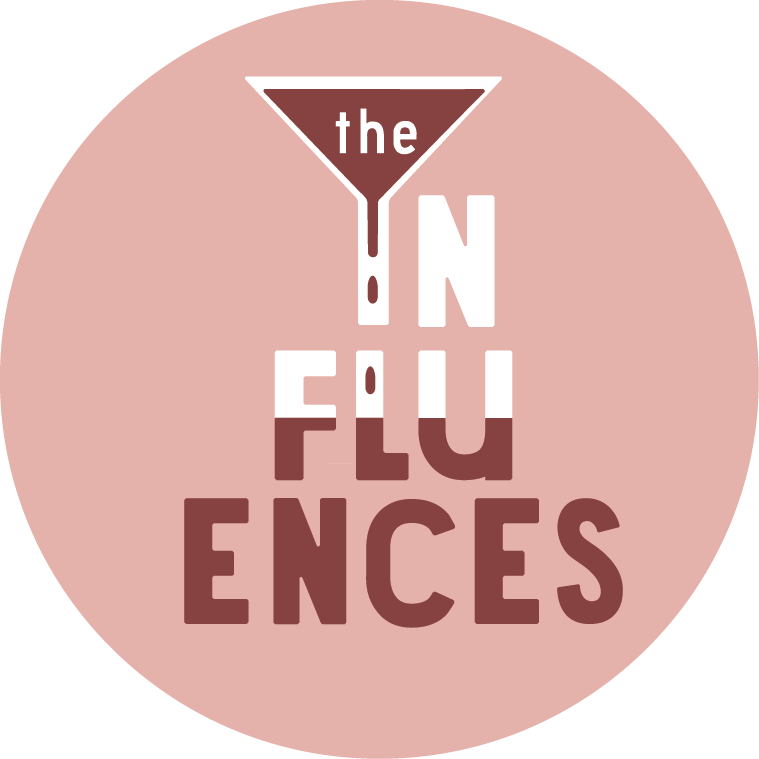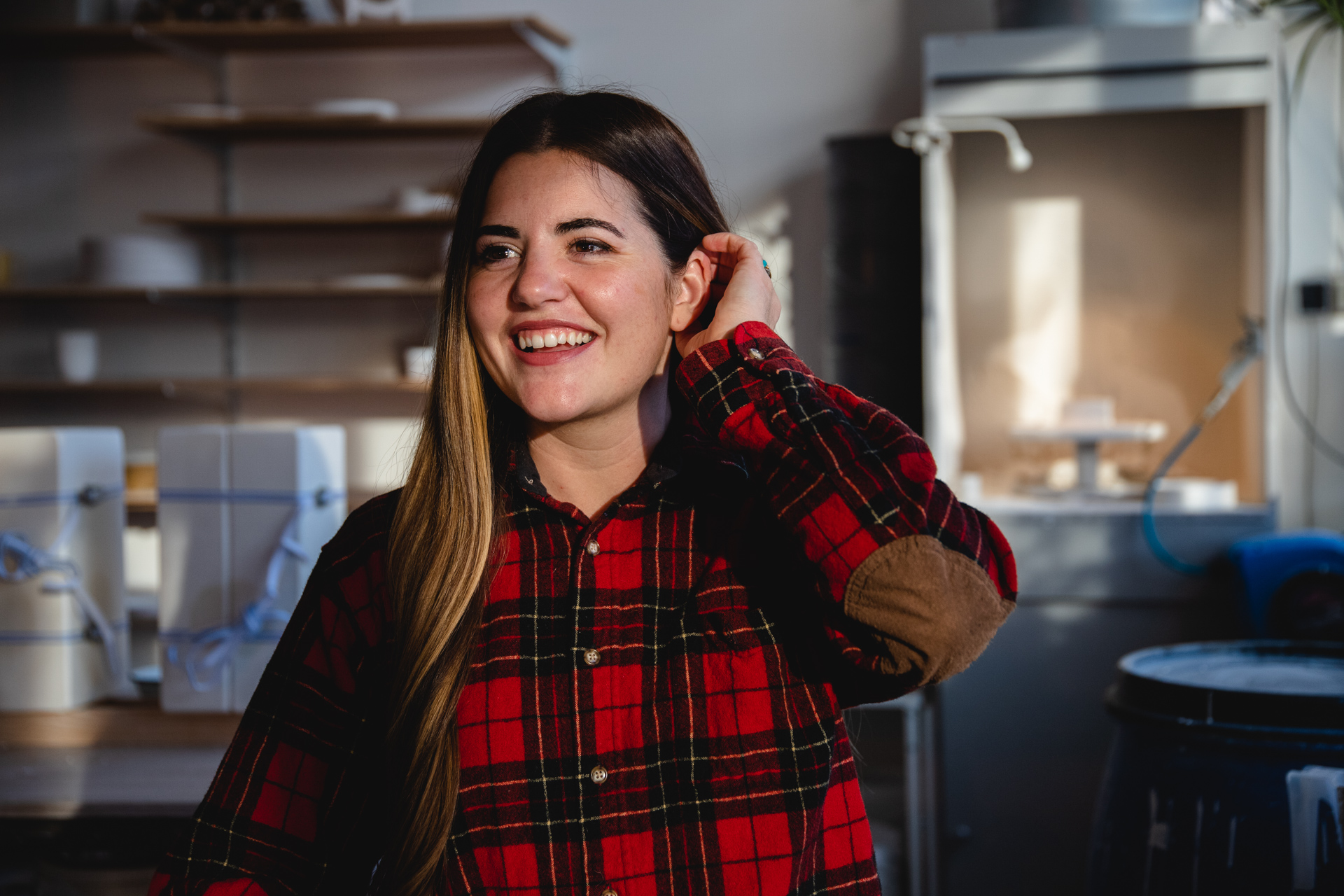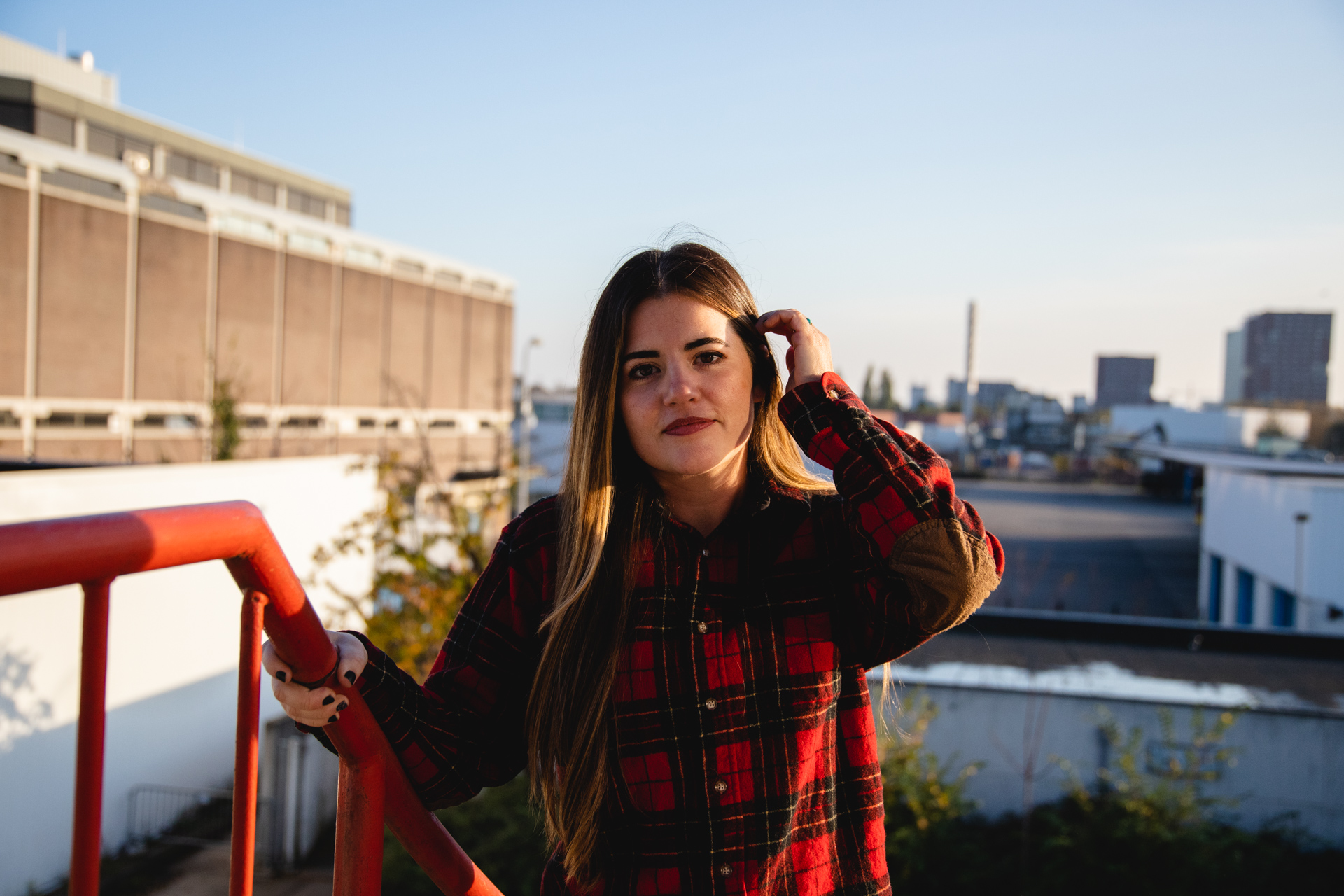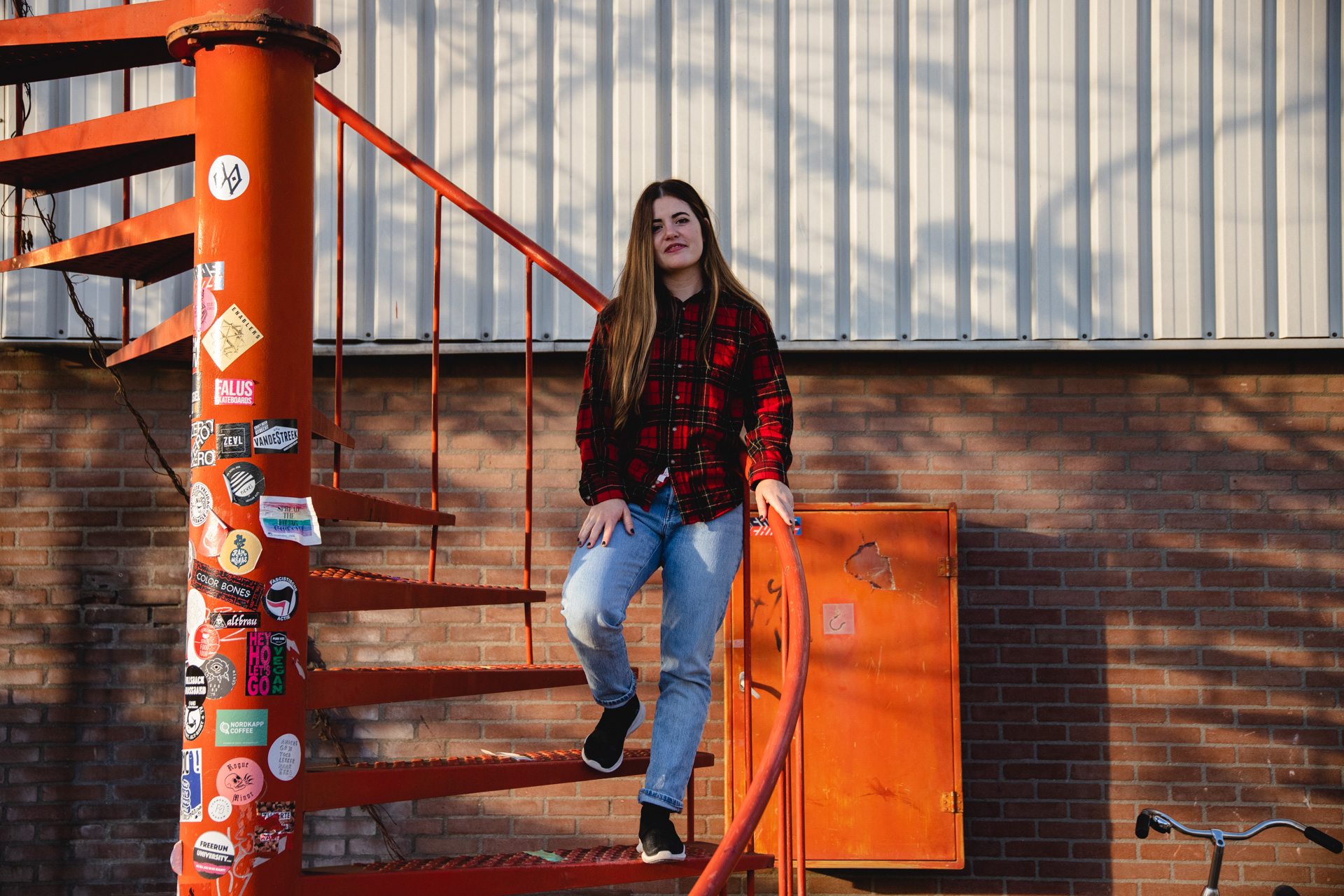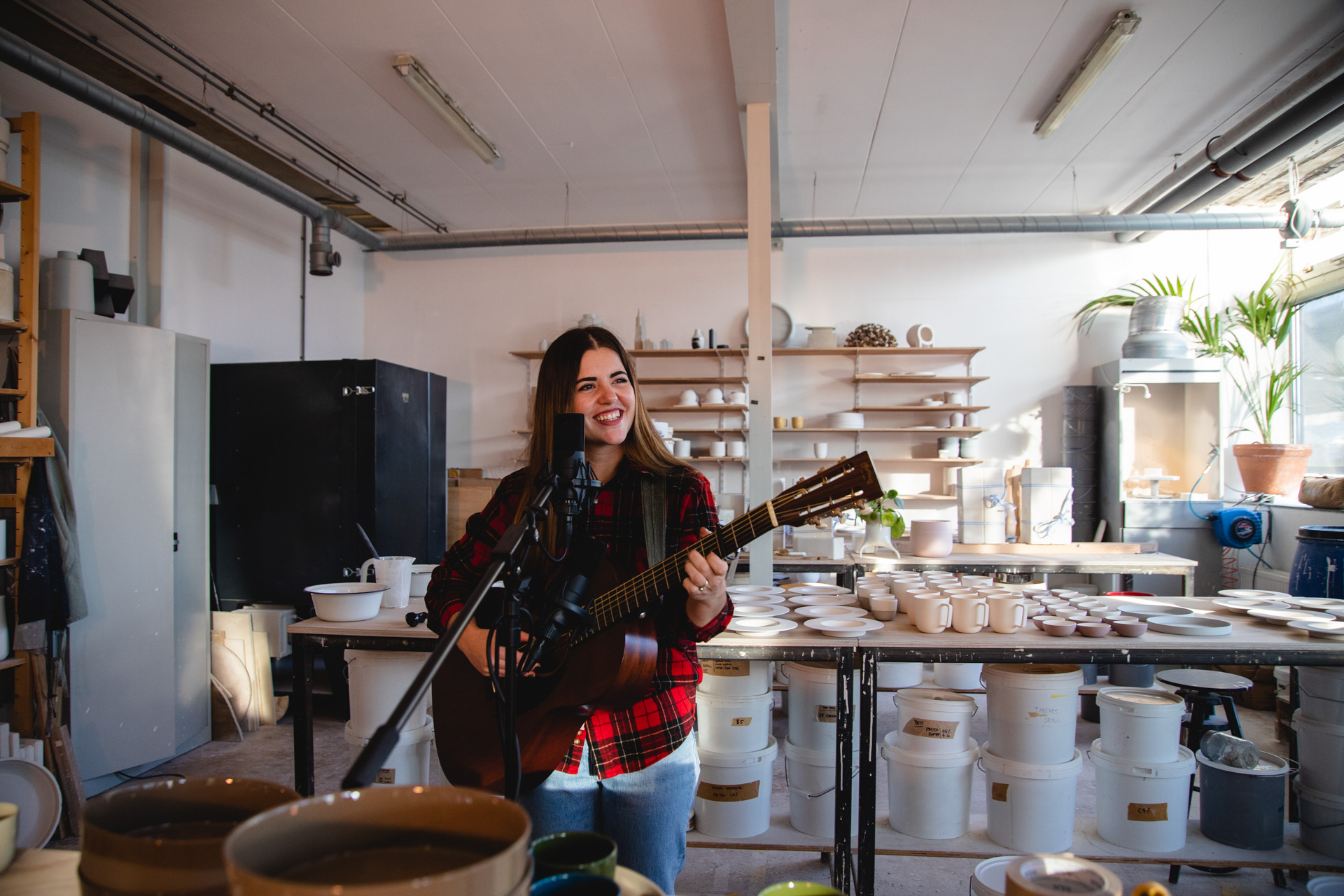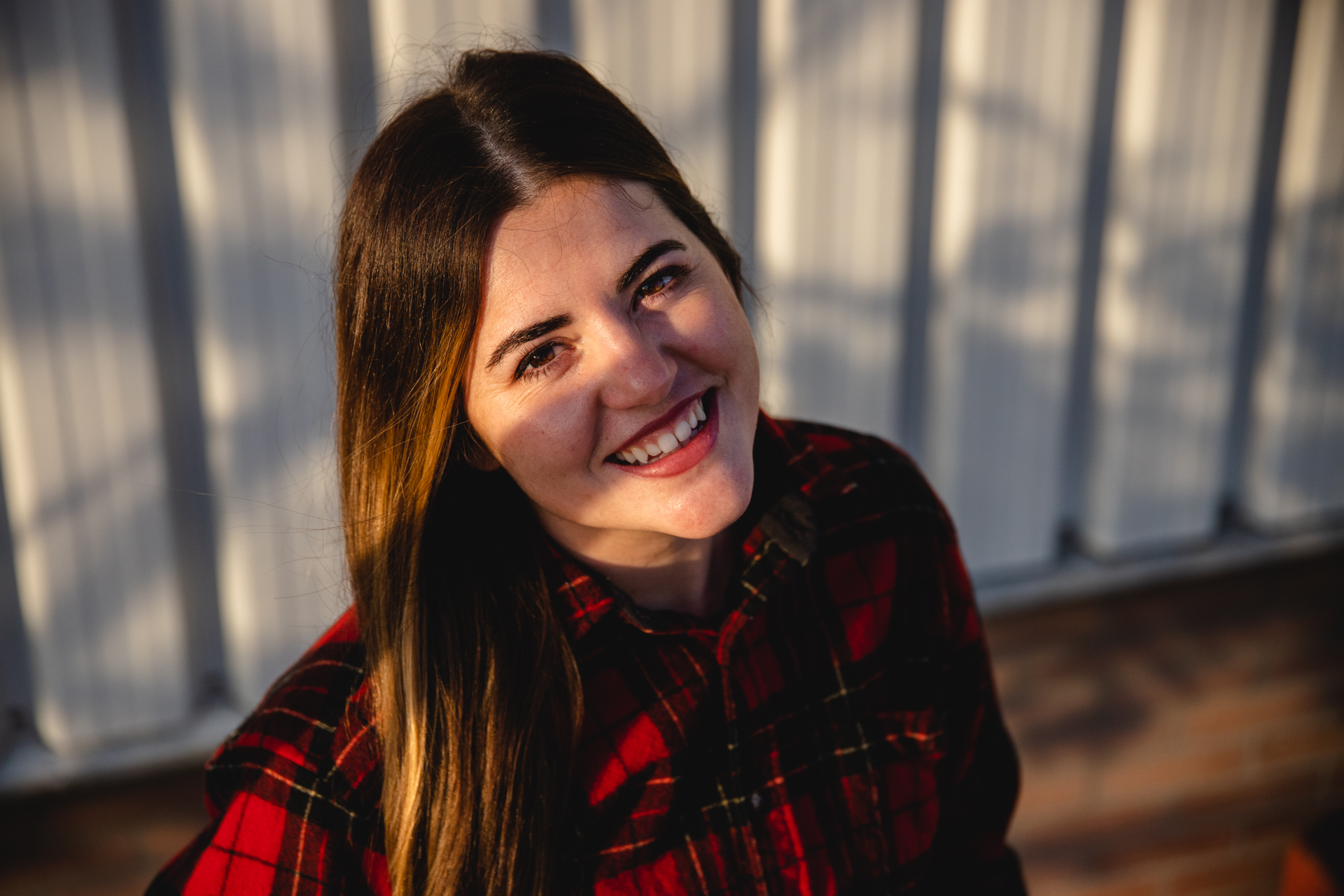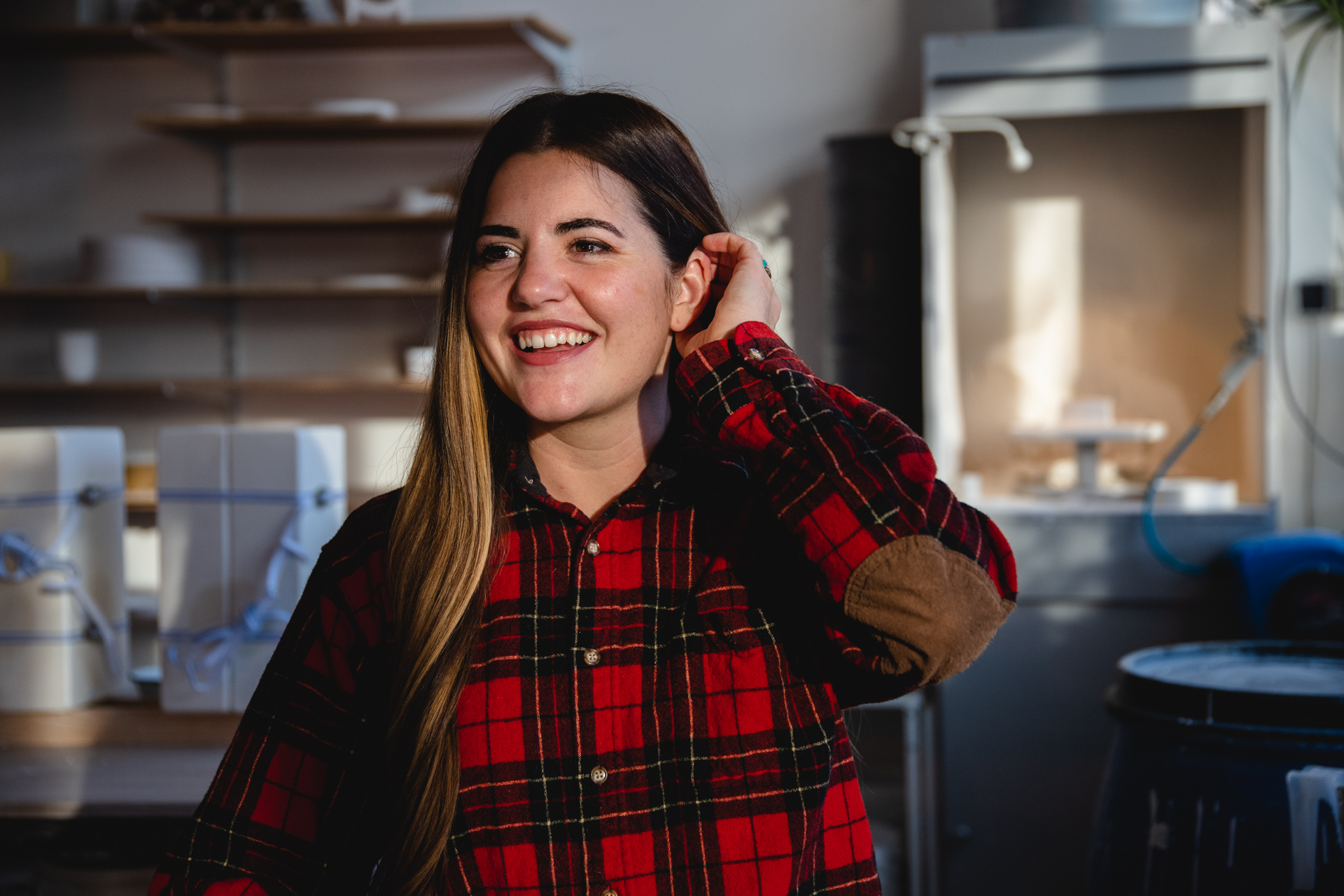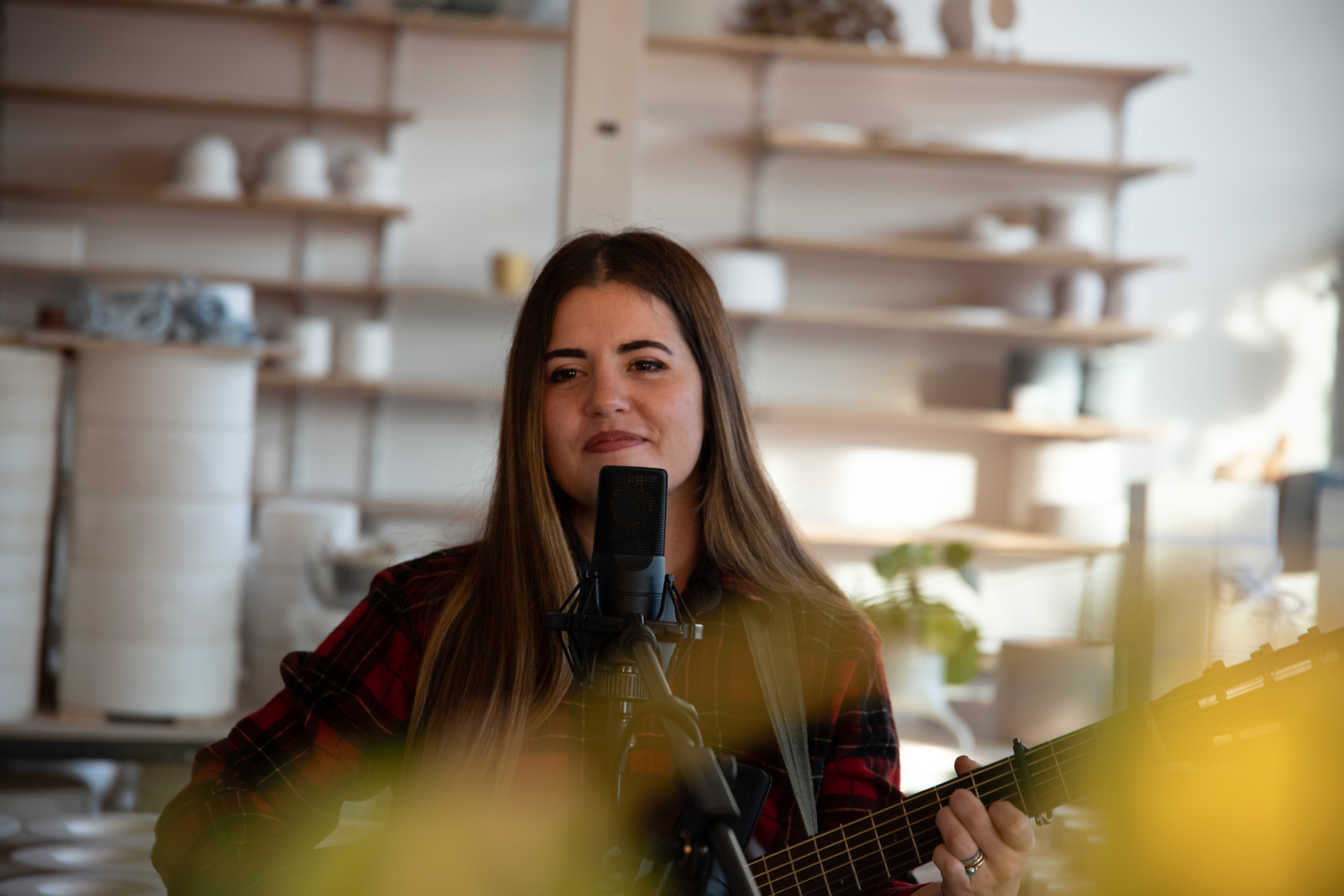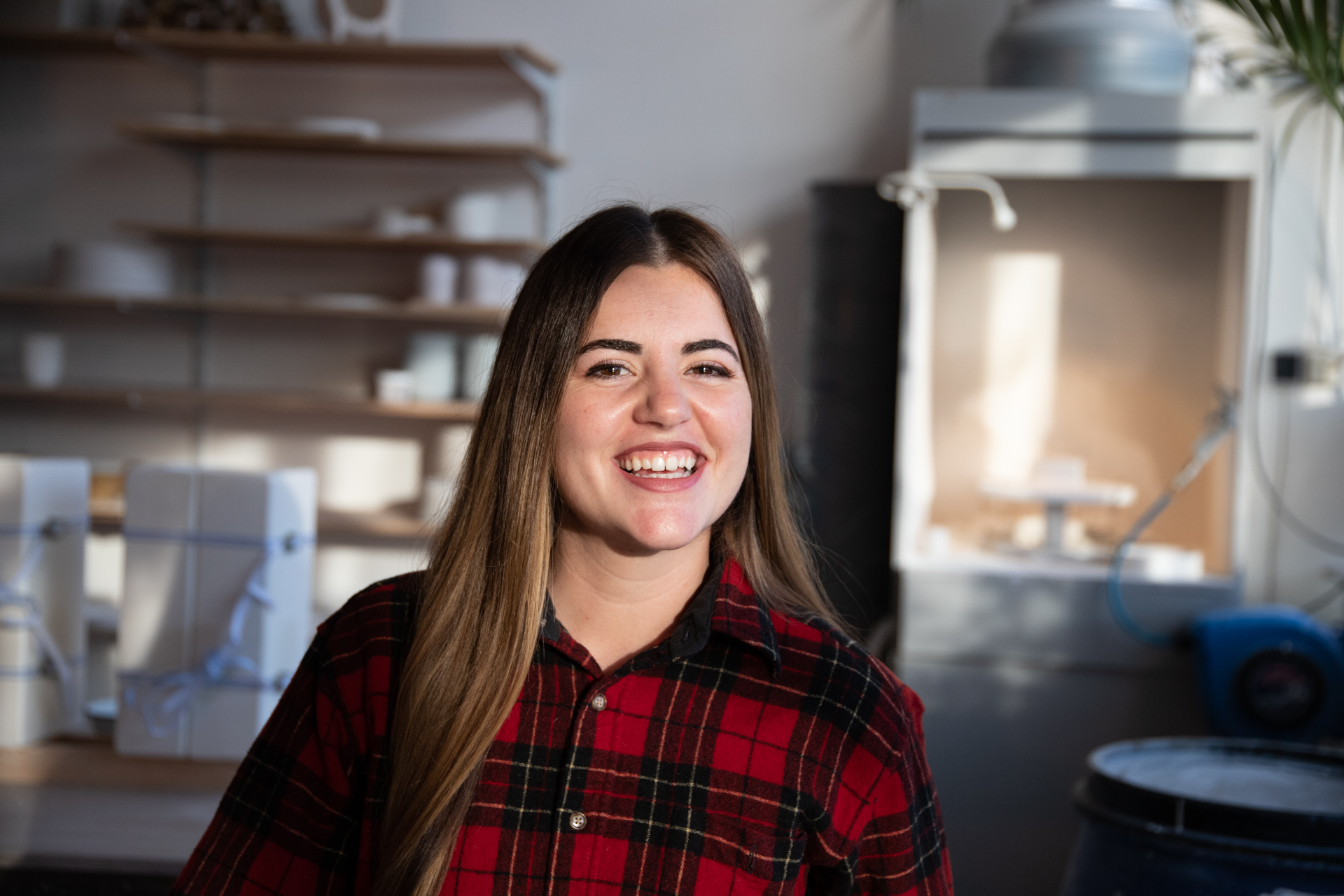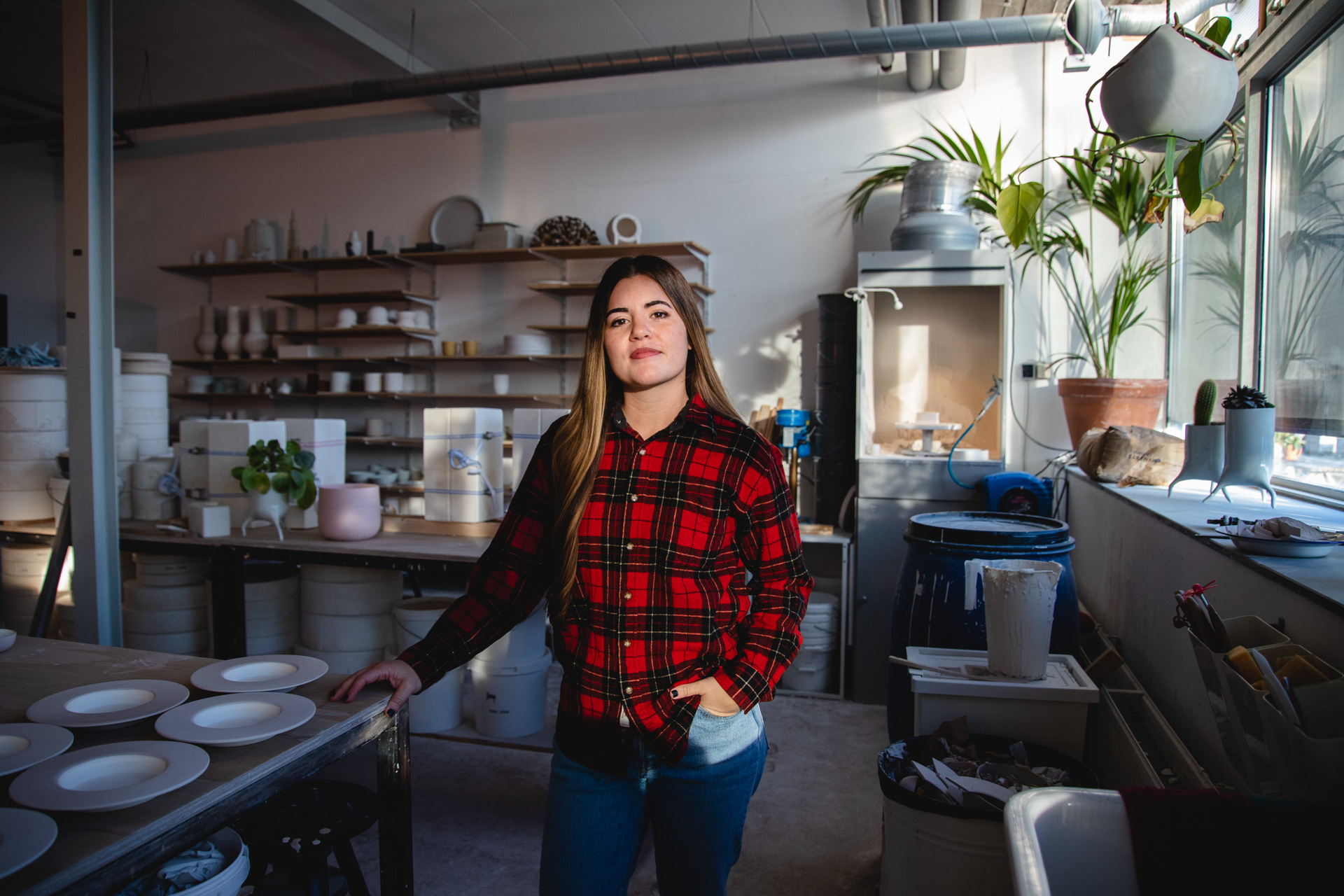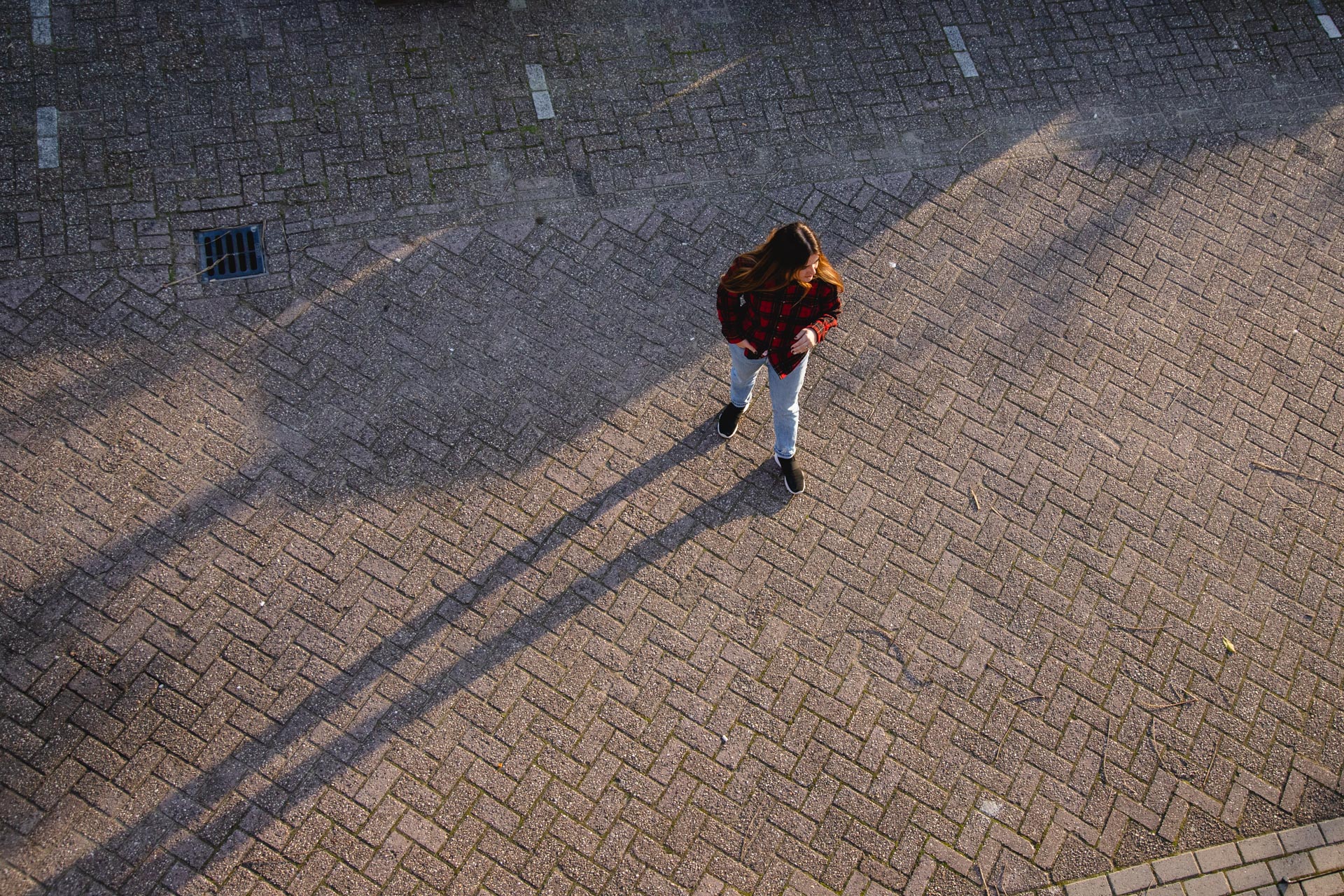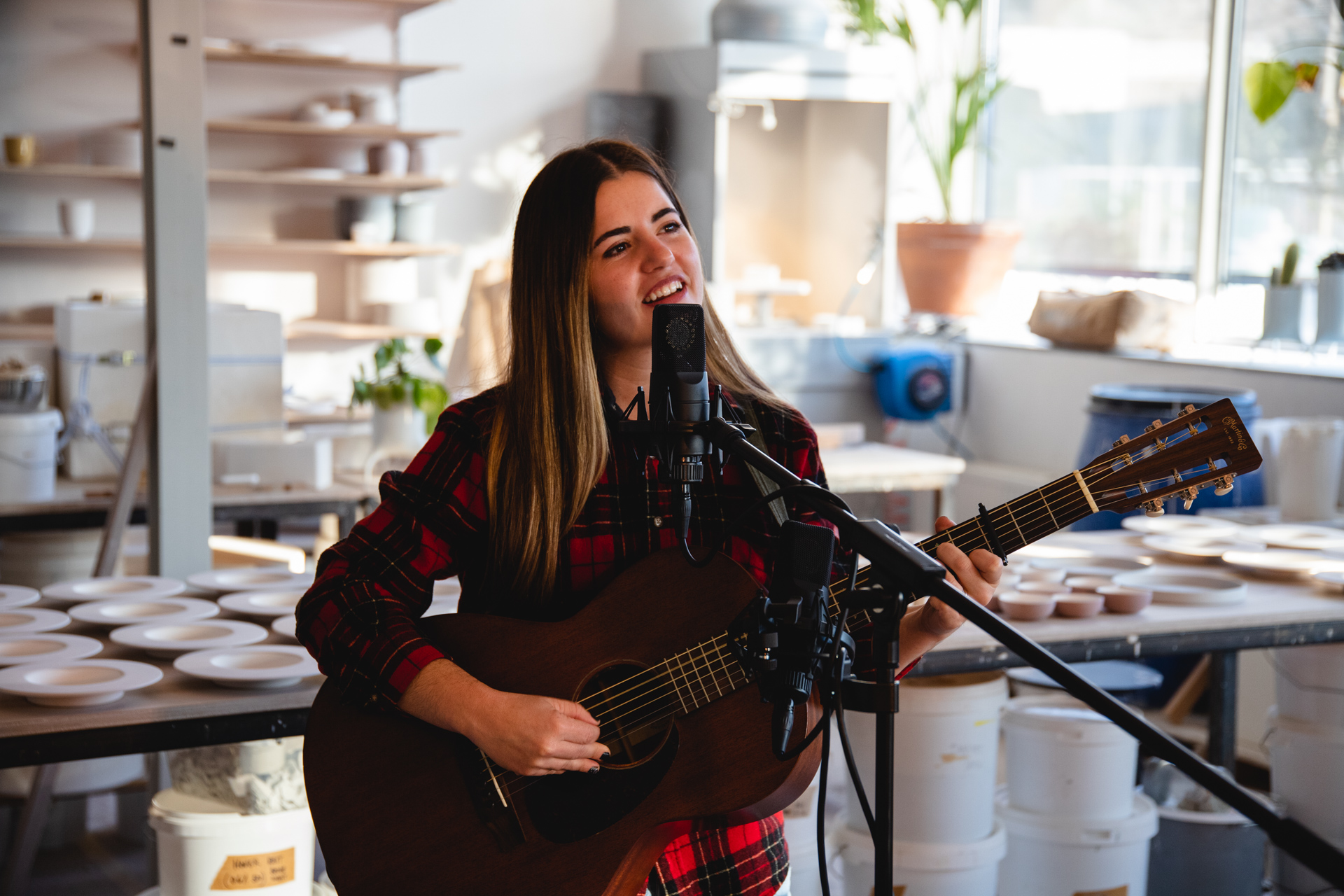Back when traveling and going to shows were still things people did, I met up with Kentuckian artist Senora May in Utrecht. Her self-released debut ‘Lainhart’ has been a very nice surprise and so was recording this session where she covered Rilo Kiley and Beyoncé. Seeing her perform live in Utrecht, on a double bill with Erin Rae, it was actually like an extra layer was added to her songs. Her stage presence, the stories and her expression made the songs come to life – possibly more than the record had done for me previously – as much as I liked it. “That’s my goal: I want to have a connection with the audience and I want them to feel a personal connection. I want to express what I feel and when I do that in shows, people are more open.”
“My music is changing, because I am too”
Senora May and I talked just after she’d returned from rehearsals with her brand new band in Whitesburg, a two-hour drive away from her hometown of Irvine in the Appalachian Mountains. “You have to go through a lot of mountains and winding roads to get there. My band lives there and they have their own band called Slut Pill, they’re great. The lead guitarist and I have rehearsed and played live a couple of times now, but this was the first time I’ve played with the bassist. And it went great!”
For the first time in her career, Senora May is collaborating on her songs. “Not the lyrics, but collectively working on the music, rather than having already written my songs and having a backing band play the parts. I want their feedback, their input and creative energy. Their experiences with different genres of music. We had so much fun, just doing whatever felt right, musically. We ended up writing songs right on the spot. I think it’s so important to find somebody that you can flow organically with, with music in that way.”
“I’ve wanted a girl band for so long, because the energy in traveling, playing and working on music is so different. The mindset of the guys I’ve played with is so different than mine. The way I interacted with fans. It’s just all to do with gender roles really. While I liked playing with those guys, they’re really talented, it just didn’t feel as comfortable as with just women.”
Senora and her band are using this period of cancelled shows to focus on becoming one strong unit. Her music is changing, she explains. “It’s inevitable. I can’t keep it one thing, when I’m changing. I feel within me an awakening of being liberated in a creative sense. Other genres have always interested me, but I’ve been hesitant of branching out because I’m from Kentucky and I have a country accent and I only know of these variables of my environment. I think It’s a little daunting, especially as a female, to do what you want. Other people give you a lot more unsolicited advice, because they’re trying to help or protect you. But for me, it was just… My first album was me breaking out and wanting to portray this message that was in my heart for a specific audience. Now, I don’t care so much about how people perceive it, I just want to have fun playing music, address issues that I’m passionate about within my own community and politically all around the world. I’m just really having fun and I think a lot of my songs will sound different. It is going to sound more open-minded and a little more exploratory.”
Addressing the issues at home
“I’ve definitely experienced the ‘shut up and play’ comments from people who don’t like me expressing my views. Where I grew up, the ideas of gender roles and sexism is absolutely ingrained in everything. People are inherently racist. But on top of that, I think that most people want the best for everyone. If they’d meet someone personally, regardless of background, gender or color, they would do anything to help that person if they’re in need. But, where they’re so disconnected from a lot of those scenarios in person, they’re able to disconnect mentally and just close off to where they don’t even want to hear about it. ‘It’s not our problem, so why are you mentioning it?’ I’ve had negative feedback from people on me making political posts, telling me that I don’t know what I’m talking about; That politics isn’t my profession, so I should stick to my profession. Which they see as entertaining them. I try not to take it personally, and see it more like that I have a platform and because of that, I have an obligation to stand up for those who don’t have a voice. I’m going to try my best in doing that, for the wellbeing of everyone involved. There’s a lot of hate in the world, and that just needs to be stomped out. I’m happy to see so many standing up for other people now.”
“I grew up in the same county I live in now. For a long time, I thought I wanted to go somewhere else far away, travel the world. Get away from here, because there was no opportunity here I thought.. When I got to university, I was around a lot more like-minded people and was able to go on adventures, like trips to California. Or go camping and hiking wherever. I studied in Italy for a while, staying in Florence and Ostia, just south of Rome. I stayed a month and a half extra, where I just partied, hitchhiked and met all these amazing people. I ended up hitchhiking by myself all the way from Ostia to Dublin to catch a flight home. I would never do this now, but I got out in the world and got what I needed.”
“There’s so much pressure in the US to go straight from public school to university and know what you want to do: study for four years and then get a job. So many people don’t know what they want yet and they’re forced to go and waste a ton of money on a profession they’re not passionate about. I wanted to study something that I thought would make a difference. I chose Political Science, but I ended up switching my major halfway through, and created my own major. It took me three semesters to get it approved, but I studied Ecological Architecture. I took sustainability classes, design and tech. I got to do woodworking and ceramics and took archeology and studied structures. In Italy I got to study the way Florence was designed. It was amazing. That area has flooded so many times, and the buildings were just so resilient. I love that stuff. And I love the idea of creating housing for people’s needs, based on the environment. We were doing okay before we became too comfortable and wanted everything cheap. That applies to housing for sure. I think so many people could benefit from the way we used to build and it would be much more affordable if we had more skilled laborers and natural building materials. You can find local materials to build a house wherever you’re based and make it sustainable.” She sighs: “I feel that way about everything though. Everything’s cheaper and faster, but detrimental long term. And nobody cares. I can’t think about it too much.”
“After I got back, I moved around a little bit, and got a job in West Virginia, but I got homesick and felt this hole inside of me. I needed to go home, because there were issues here and I got in the mindset of: If everyone went to where they’re from and fix that place, then everywhere would be so nice and taken care of. This region especially is often neglected by youth, because so many people move away for opportunity. That’s the problem though. Nobody is creating opportunity here. My husband and I decided to move here and do it differently. We have a bit of land and are trying to create a homestead and farm, and I just want to play music on the side. Chickens, goats, rabbits, produce. I’m excited!”
Don’t give up your passion to take care of others
“The area where I’m from is really rich in folk music: bluegrass, Appalachian music. There was a bluegrass festival down the road from the house I grew up in, actually where my mom and dad first met. My dad listened to a lot of country music on the radio and my mom listened more to independent, hypnotic rock. She was into a lot of strong females and I consider a lot of my mom’s music as an inspiration for me early on. People like Edie Brickell, Tracy Chapman, Nathalie Merchant and Van Morrison. And mom really loved Lucinda Williams. As I got older, I started finding music that I liked in more personal ways, so at that point I was branching out to R&B, rap and pop music. I really love Nina Simone and Billie Holiday. At seventeen, I got passionate about the music that I liked and started writing my own songs.”
Regarding No Angel and why she chose to cover that song for The Influences: “I don’t think there’s been a part of my life that Beyoncé wasn’t a huge part of. She’s been making hits since I was a kid. She’s always been in the background; the soundtrack of my life. Whether it was in the local convenience store, on the radio or me listening to it by choice. She’s a powerhouse. What’s appealing to me, beyond her talent of vocal range and control, is her ability to dictate the conversation about herself within the media. She’ll just vanish and nobody will know where she’s at or what she’s working on. And then she’ll resurface and put out a visual album that nobody even knew she was working on. That control and power is so fantastic to see a woman exuding. Would I want to be like her? I would absolutely want to be like her, in a lot of ways. If I can encourage people to follow their passion that they had suppressed for a long time, just by hearing my songs and seeing that I’m doing just that, that is being like Beyoncé, in my opinion. Just focusing on your work and knowing what you want and not taking no for an answer, that’s so powerful, and so rare for women to do. Women are encouraged to do the opposite, to sacrifice and help others reach their goals. ”
“I see it happening here a lot: grandmothers, young girls, mothers, giving up their own needs for other people, their kids, their husbands, grandkids… And I have been there myself; I felt like I wasn’t whole, because I was giving myself to other people so much. My husband was on the road all the time playing music, my brother was gone in the military, and I was just worried about their safety and doing so much to make their life easier. Dedicating time to make them feel better about what they were going through. That’s the story of so many women in the culture of Appalachia, because it’s ingrained in us to think we’re secondary, just by being female. ‘God has ordained us to be caretakers and nurturers.’ Even a lot of women who aren’t religious still give up their passions to work nine to five jobs, or multiple jobs, to feed their kids and upkeep the household. They’re just not doing what makes them happy, because they want to make everyone else around them happy. It’s subconscious, whether we recognize it or not.”
“At a certain point, I felt unfulfilled and unhappy, and I knew that I wanted to put out an album. I’d been writing for a long time and people had been encouraging me about my songs. Women told me that those songs had inspired them to stand up for themselves. That encouraged me: I saved enough money and put out ‘Lainhart’, a low-budget album. I just wanted to put it out for the people who’d asked me to. I felt good in making it. That was all it was. Looking back at it now, it could have been higher quality and I could have had more exposure, but I’m glad I put it out the way I did. I wanted it to prove to anyone that they could do it too.”
Who is Senora May?
“There have been a few artists who’ve influenced me when I started writing. I’ve always liked how Jessica Lea Mayfield makes melancholy, matter of fact rock. It doesn’t seem like she has any regard to what people are going to think. She’s putting out this raw emotion, and it’s so simple lyrically, but very relatable. Her music is so good. I also love John Prine and the way he wrote. And Josh Ritter, I like a lot of wordy stuff – thoughtful lyrics that you gain something from each time you listen. I also like simple but exciting melodies. So yes, those are some of the people that inspired me in those regards.”
“Once I realized what I want out of life and what makes me happy, who I am as a person and where I’m from became things I’m proud of… I think my voice came from a mix of a lot of stuff. I only realized I had found and developed my own voice after the fact. I had been trying to write good music and wasn’t focused on who it might come out sounding like. As long as it felt good playing it, or if I was proud of it when it was written.”
She mentions having realized who she is as a person pretty much mid-sentence, off the cuff. So who is she? What defines Senora May as a person? She laughs: “That’s a really hard question! Why did you have to ask me that? I’m someone who cares a lot about my family and where I’m from. I really want to be the person who helps solve issues. I see people that I admire and respect and recognize what it is about them that makes me admire and respect them, and try to apply it to my own life and surroundings. In doing that, I think I’ve become someone who kids look up to in certain settings, my family’s really proud of me. I don’t know, I just feel good when I make people from where I’m from feel good or change their way of thinking to a more positive light.”
Photos
Originals
Silver Lining (Rilo Kiley)
Spotify | Apple Music
No Angel (Beyoncé)
Spotify | Apple Music
Senora May
Credits
Filmed by Rachel Huneker & Matthijs van der Ven.
Edited by Matthijs van der Ven.
Audio recorded & mixed by Matthijs van der Ven.
Location
Husk Ceramics
Utrecht, The Netherlands
Thanks
Husk Ceramics
Sedate Bookings
Rachel Huneker
There is no better way to discover music than watching great musicians cover the songs they love. The Influences has been producing these videos ever since 2008.
Read more.
